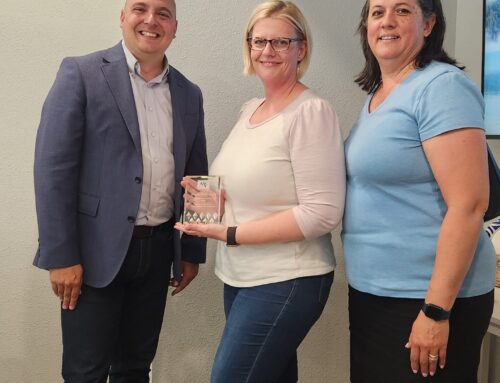Legislative Update – 6/10/2019
The 2019 legislative session must adjourn by June 30. Tensions are high as legislators make a last push to pass priority bills before the Constitutional end of session. A number of large policy priorities remain, diesel, cap-and-trade, paid family leave. The next three weeks will be chaotic as they work to get the votes on remaining bills.
HB2020 Cap and Trade:
On May 17th, HB 2020 passed its first milestone. After three hours of debate, the Joint Committee on Carbon Reduction adopted the -94 amendments on a party line vote and sent the bill to the Joint Committee on Ways & Means. Session is drawing to a close, and legislators are making a last push to get this bill across the finish line.
On Tuesday, Representative Christine Drazan (R-Canby) released a memo from legislative counsel that questioned whether or not HB2020 is actually a revenue raising bill and therefore subject to the State’s 3/5 majority vote. The memo indicates that HB2020 violates Article 8 of the State Constitution, which states any taxes levied on the sale, distribution or use of natural gas must be dedicated to the Common School Fund. The memo went further to explain that taxes on natural gas are likely capped at 6% in the State Constitution.
On Wednesday evening, the Ways & Means Subcommittee on Natural Resources held a special evening work session to pass out the cap-and-trade bill, HB 2020. After two hours of public testimony and debate, the committee passed HB 2020 on a party line vote with all republicans voting ‘NO.’ Republican committee members supported amendments to remove the emergency clause (and allow Oregonians to vote the bill up or down), but the amendment was rejected.
At the same hearing, legislators passed SB 1051 (introduced by Sen. Lee Beyer), which refunds any cost increases due to cap-and-trade for off-road fuels used in agriculture. Sen. Beyer’s bill is an effort to mitigate some of the fuel price increases that farmers will face under HB 2020 – now estimated at $0.22 per gallon in 2021.
Even though HB 2020 passed out of the subcommittee on Wednesday, passage of the bill is not a done deal. Early projections indicate that HB 2020 would raise $1.3 billion in new taxes in 2021-2023, and approximately 75% of the impact is borne by the transportation sector. A broad coalition of business representatives has been working hard on a solution that protects businesses and ratepayers as well as the transportation sector. These efforts (-102 amendment) would protect local businesses and consumers from the negative impacts of cap-and-trade and give the Legislature time to sort out numerous constitutional challenges before cap-and-trade is fully implemented. The amendments are just now getting traction, but this bill is being fast-tracked.
Under HB 2020-A:
- Transportation costs will increase and raise $1.3B when it takes effect in 2021.
- Cause an immediate $.22 per gallon increase at the pump in 2021, increasing to $3 per gallon by 2050.
- A new 54-employee bureaucracy required to implement the bill would cost about $23M in the coming two-year budget cycle with potentially significant increases in the future.
You can read an article here in the Oregonian on the topic: https://www.oregonlive.com/politics/2019/06/oregons-massive-cap-and-trade-bill-inches-forward.html?utm_source=twitter&utm_medium=social&utm_campaign=oregonian_sf
Reach out to local representatives by email:
Representative Ron Noble – Rep.RonNoble@oregonlegislature.gov
Senator Brian Boquist – Sen.BrianBoquist@oregonlegislature.gov
You can also use a template that has already been made for you and will be sent to these representatives: https://www.votervoice.net/OSCC/Campaigns/63354/Respond
Diesel (HB 2007). Negotiations are still in the works on HB 2007, the on-road diesel engine retrofit and replacement bill. If new amendments get traction, the bill is likely to move next week. The current version of the bill:
-
- Limits the phase-out and diesel retrofit requirement for on-road diesel engines to the tri-county (Metro) area which includes Clackamas County, Washington County, and Multnomah County.
- Exempts:
- F-Plates, farm tractors, and implements of husbandry
- Log trucks
- Low use of 5,000 miles or fewer in a year
- Motor homes
Commercial Activity Tax – Technical Fixes (HB 3427).
Senate Revenue Chair Mark Hass has been working on technical fixes to HB 3427, the commercial activity tax, which is a $2.8 billion tax increase on Oregon businesses with sales over $1 million. HB 2164 (the technical fix bill) and specifically the -1 amendments made several improvements to the bill, particularly for the insurance industry. However, the amendment also contained a not-so-subtle carve-out of the new gross receipts tax for a major Intel project (see Sections 7-13)._
Community College Funding (HB 5024).
The Higher Education Coordinating Commission budget appears to have approximately $645 million allocated to Oregon’s 17 community colleges. While this is a $50 million increase over current service levels, it is far short of the $647 million base budget plus $140 million to expand CTE and Student Success programs.
Paid Family Leave (HB 2005).
Paid family and medical leave has dominated the workforce conversation this session. On Friday, Oregon Business and Industry entered into final negotiations with House leadership to pass HB 2005 this session and forestall a ballot measure. The draft policy under consideration is modeled loosely on Washington and includes:
-
- 12-weeks paid family and medical leave annually
- All employees are eligible after they’ve earned $1000
- State-run insurance program, funded through payroll tax contributions
- Premium collection begins in 2022
- Employees can begin to take leave in 2023
- Payroll tax of up to 1%:
- 60% employee paid
- 40% employer paid
- Employers with 25 or fewer employees are not required to pay the premium
- Job protection requirements come into effect after 90 days of employment
We anticipate the release of a final amendment by the end of the day on June 10. We could see this bill move out of the House Rules Committee as early as June 11.
HB2014 – Non-economic damages
In a strange twist, the Senate had been poised to pass HB2014 (to increase non-economic damages in lawsuits from the current limit of $500,000 to unlimited), instead they voted 15-14 and the bill died. Republicans had offered a $1.5M cap with a provision to increase automatically with inflation, however it was rejected by the Democratic majority. In the end, four Democrats voted against the bill along with all the Republican senators.




